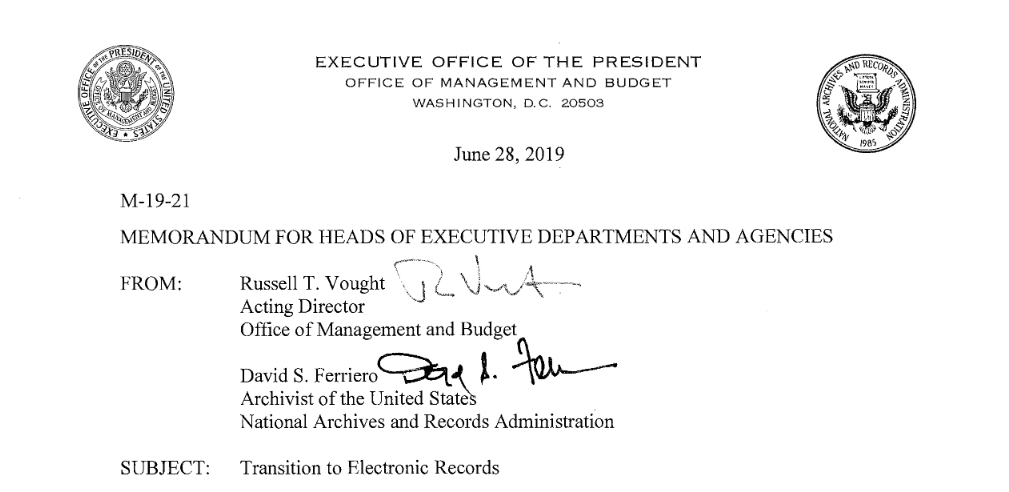When it comes to Freedom of Information Act requests, it is mandatory to disclose information on time. Content must be collected, reviewed, and packaged as a response. That is easier said than done when agency data is scattered, hard to search through, or difficult to collaborate around. Deadlines are missed, critical records are lost, and sensitive information can spill.
When agencies work their FOIA caseload manually, they struggle to meet their objectives. Here are 5 main reasons why agencies fall short of their goals.
1. There is no uniform solution across the agency.
Many agencies leave staff without a uniform solution to create FOIA deliverables. If organizations use legacy desktop clients to house that information, systems can’t communicate with each other, and staff are left to sift through them for content.
Even if systems are connected, IT needs to continuously integrate them to ensure knowledge workers’ access. That much administrative work consumes human resources. Documents are searched through manually, information gets lost, and budgets are strained.
Agencies need a centralized system to meet FOIA deadlines. The single workbench approach allows knowledge workers to access anything and everything they need to manage FOIA cases.
2. There are too many complexities to handle FOIA requests manually
The sheer volume of data that agencies capture, process, and archive increases every day. It is time-consuming to manually search through that much information. Once captured, agency rules mandate different kinds of redaction for different types of content. Without the right tools to create a pixel-by-pixel replacement, redacted information may not be redacted at all. Sensitive data is left visible and released by accident.
When there are hundreds of FOIA requests to create, package, and deliver, it is a challenge to track all of their statuses. There is no way to pinpoint which of those hundreds of requests are more urgent, and which of those due dates are closer.
Automation is the only way to fix this. When cases are automatically created and the content in them can be automatically redacted, time is freed up for knowledge workers to focus on more critical tasks.
3. Collaboration Challenges
The outcome of a FOIA request is dependent on the communication among those assigned to the case. The past year has challenged the government to do a large portion of this work from home. Often the contents of FOIA requests are cross-departmental or even cross-agency, which creates a line of communication between SME’s in different locations. When there are problems or questions, knowledge workers must ask SME’s for assistance via email. These emails are often left for several days in the SME’s inbox without an answer, and dead stops put the agency at risk of missed deadlines.
Knowledge workers must be able to communicate with each other and with the requestor. When the case is opened, the team assigned to it must keep up communication with the requestor and give them estimates, status updates, and the ability to track the case through its lifecycle. When this process is done through phone or email, communication is not transparent. No one knows what the FOIA team has already communicated to the requestor, or what still needs to be said.
Another hurdle that agencies struggle over is collaborative access. With no system in place to allow group work, team members will not be able to interact with systems at the same time for collection. Without the tools to control access, FOIA teams can’t permission content or control who can see what within the case. When agencies can’t control who can see what sensitive information, FOIA goals are not met.
4. Poor Access to Data
It is a challenge to keep information organized when there are multiple data types and sources. Email is a source now, with social media and chat to become sources in the future. Email search and retrieval is sub-par and will take a considerable amount of time when compared to advanced search features. Once the information is collected, there is also no way to see both text and metadata at the same time. If knowledge workers find that they need more information from the eDiscovery side, they have fallen short of their FOIA goals.
When workers cannot interact with their cases, time is wasted. SME’s should be able to connect to their workstation from any location and on any device. If they know where they need to work and can get into their cases, the collection process can start immediately.
A lack of a real Records Management system lives at the heart of this challenge. With a repository in place, knowledge workers have access to collect and create deliverables.
5. No Oversight/Accountability
At the end of every FOIA case is a potential audit process. The work that FOIA teams complete should be entirely defensible. There needs to be a visual tally of everything done to create the deliverable. Vaughn indexes display that tally of case actions and guarantee transparency. Certain solutions can create Vaughn indexes automatically, but if there is no solution in place then it is up to an individual to create one by hand. That process can take up mission-critical time and put the agency at risk of falling short of its FOIA objectives.
Supervisors need oversight tools to be able to meet their own FOIA goals. When they are unable to see who completed what task or what the status of their case is, there is no accountability. Cases are not tracked across their lifecycles, and there is no way to tell which action officers are busy and which can take on more work.
Take Control of the FOIA Process
Agencies that manage their FOIA requests with outdated systems and manual practices are in a situation where it is difficult to meet their turn-around time goals. When it takes hours to search for content and days to hear back from SME’s, time is wasted.
When agencies utilize FOIA solutions to manage their caseloads, their goals are achievable. Information can be accessed, searched for, collected, redacted on, and packaged for delivery before the deadline. Teams can work together on content at the same time. Security features keep sensitive information from the wrong hands, and oversight features allow supervisors to monitor their workers progress and steer them in the right direction.









